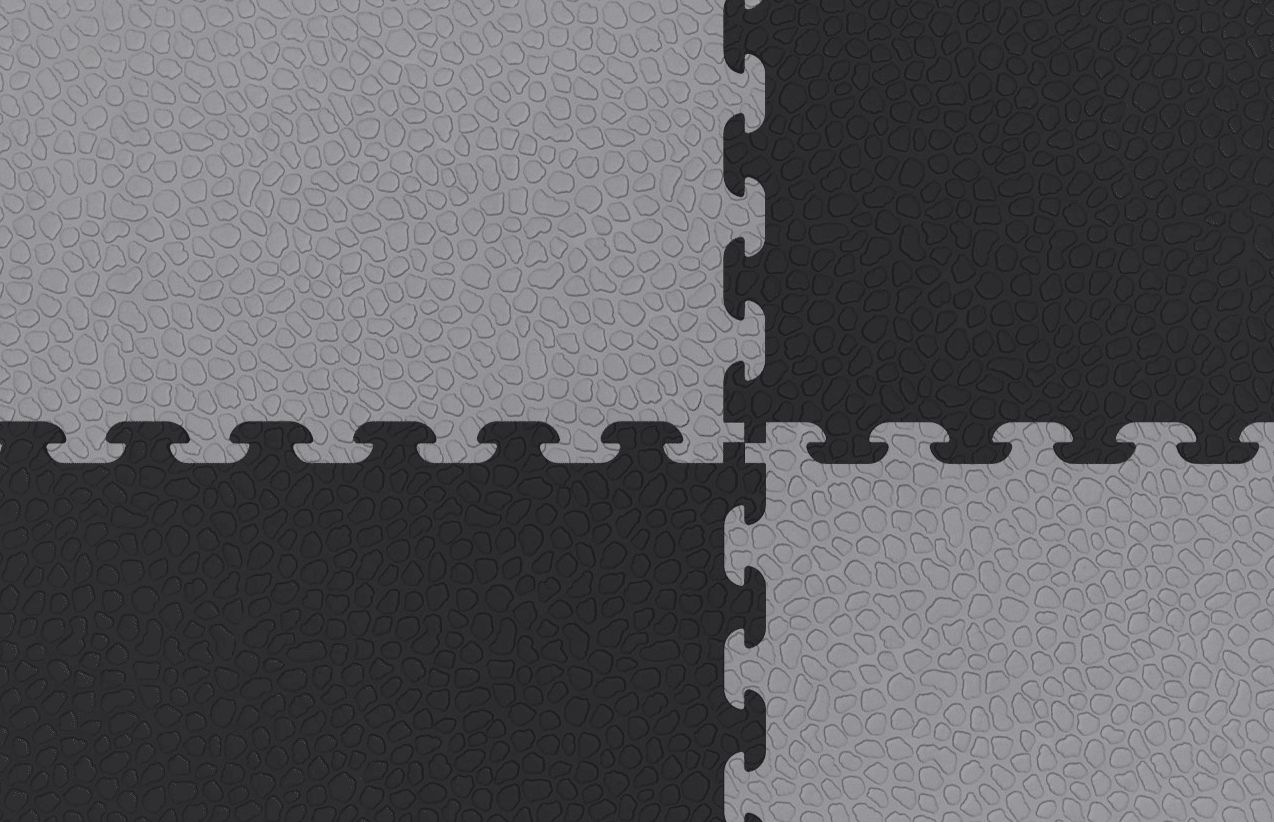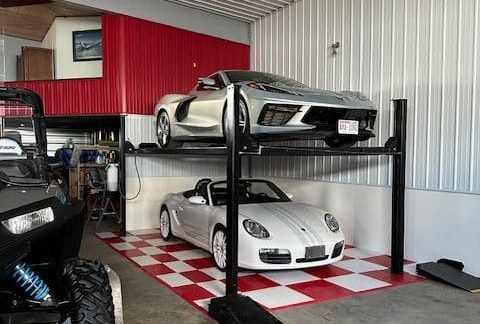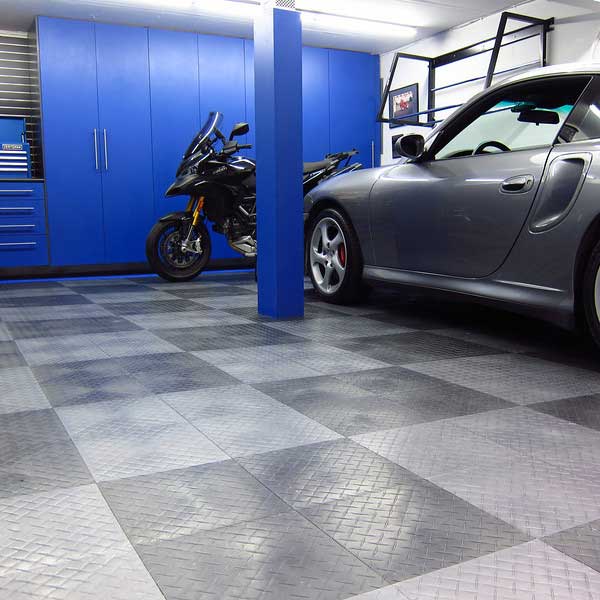Your garage is more than just a place to park your car; it’s an integral part of your home’s footprint. Increasingly, homeowners are seeing the garage as an extension of their living space, whether it’s a functional workshop, a vibrant home gym, or simply a beautifully organized storage area. A key element in elevating your garage’s aesthetic is its floor. Gone are the days when a plain, dusty concrete slab was the only option. At Garage Flooring LLC, we offer a vast array of colors, textures, and materials that allow you to seamlessly match your garage floor to your home’s existing style.
Why Harmonize Your Garage Floor with Your Home?
- Cohesive Design: A matching floor creates a sense of continuity, making the garage feel less like an afterthought and more like a deliberate part of your home’s design.
- Enhanced Curb Appeal: If your garage is visible from the street, a well-chosen floor color or pattern can significantly boost your home’s exterior appeal.
- Increased Home Value: A finished, aesthetically pleasing garage contributes to overall home value and is a major selling point.
- Personalized Space: It allows you to inject your personality and extend your interior design principles into a often-neglected area.
Understanding Your Home’s Architectural and Interior Style:
Before choosing a color or material, take a moment to identify your home’s dominant style:
- Modern/Contemporary: Clean lines, minimalist aesthetic, often features industrial elements, muted color palettes (greys, whites, blacks), and sometimes bold accents.
- Traditional/Classic: Timeless appeal, often featuring natural materials, warmer tones, and a more structured, orderly feel.
- Farmhouse/Rustic: Emphasizes natural textures (wood, stone), distressed finishes, warm and earthy color palettes, and a cozy, inviting atmosphere.
- Industrial/Urban Loft: Raw materials like exposed brick and concrete, metal accents, utilitarian design, often cool grey or metallic tones.
- Coastal/Beach House: Light, airy, natural textures, blues, greens, sandy neutrals, and a relaxed vibe.
- Eclectic: A mix of styles, often vibrant, bold, and personalized.
Matching Materials and Colors to Your Home’s Aesthetic:
Now, let’s explore how different garage flooring options can complement various home styles:
- For Modern & Contemporary Homes:
- Colors: Opt for sleek light to dark greys, cool whites, or even solid black (if you have excellent lighting). These provide a sophisticated, minimalist base.
- Materials: Polyurea coatings or high-gloss epoxy coatings offer a seamless, reflective finish that perfectly aligns with a modern aesthetic. Consider a solid, uniform color or a subtle flake system.
- Tiles: Solid color rigid interlocking tiles in graphite or slate grey can also create a sharp, defined look.
- For Traditional & Classic Homes:
- Colors: Warmer tones work well. Think tans, beiges, or earthy browns. Medium greys can also be a good bridge between classic and modern.
- Materials: A classic epoxy coating in a solid, warm color or with a smaller, subtle flake blend (creams, browns, light greys) can provide a timeless, elegant foundation.
- Tiles: Textured garage floor tiles in natural stone-like colors or a subtle checkerboard pattern using warm tones can add a classic touch.
- For Industrial & Urban Loft Styles:
- Colors: Embrace the raw aesthetic with medium to dark greys or even metallic tones.
- Materials: TruAlloy Metallic Coating is perfect here, creating an industrial look reminiscent of polished metal. High-gloss polyurea or epoxy in a solid dark grey also fits well.
- Tiles: Diamond plate tiles immediately evoke an industrial feel and offer excellent durability.
- For Farmhouse & Rustic Homes:
- Colors: Stick to warm, earthy neutrals like tans, beiges, muted greens, or softer greys. Avoid stark white or very dark, cool tones.
- Materials: A solid epoxy coating in a warm neutral, or a flake system with natural, earthy tones (browns, creams, light greys) can provide a clean yet inviting base.
- Tiles: Flexible PVC tiles in warm greys or earth tones can offer a softer, more inviting feel, while still being incredibly durable.
- For Coastal & Beach House Styles:
- Colors: Think light and airy. Light blues, sandy beiges, crisp whites, or very light greys would be ideal.
- Materials: A simple, clean epoxy or polyurea coating in a light, solid color will brighten the space.
- Tiles: Interlocking tiles in light blues, whites, or sandy tones can create a relaxed, airy atmosphere, with patterns that mimic boardwalks or nautical themes.
Tips for a Seamless Match:
- Order Samples: The best way to visualize is to order samples of tiles and place them in your garage’s natural light.
- Consider Adjacent Spaces: Think about the flooring and color palette of rooms directly adjacent to your garage entrance.
- Lighting Matters: Your garage’s lighting (natural vs. artificial) will affect how colors appear.
- Don’t Forget Function: Always balance aesthetics with the practical needs of your garage (e.g., a workshop might need more durable, stain-hiding colors).
Your garage floor is an untapped design opportunity. By intentionally matching it to your home’s overall style, you can transform it from a purely functional space into a cohesive, attractive, and valuable extension of your living environment.
Ready to find the perfect garage floor to match your home’s unique style?
- Explore our wide range of Garage Floor Coatings in every color imaginable.
- Discover our versatile Garage Floor Tiles for custom patterns and styles.
- Use our online Tile Designer Tool to experiment with your design ideas!
- Contact our experts for personalized design advice and product recommendations.




